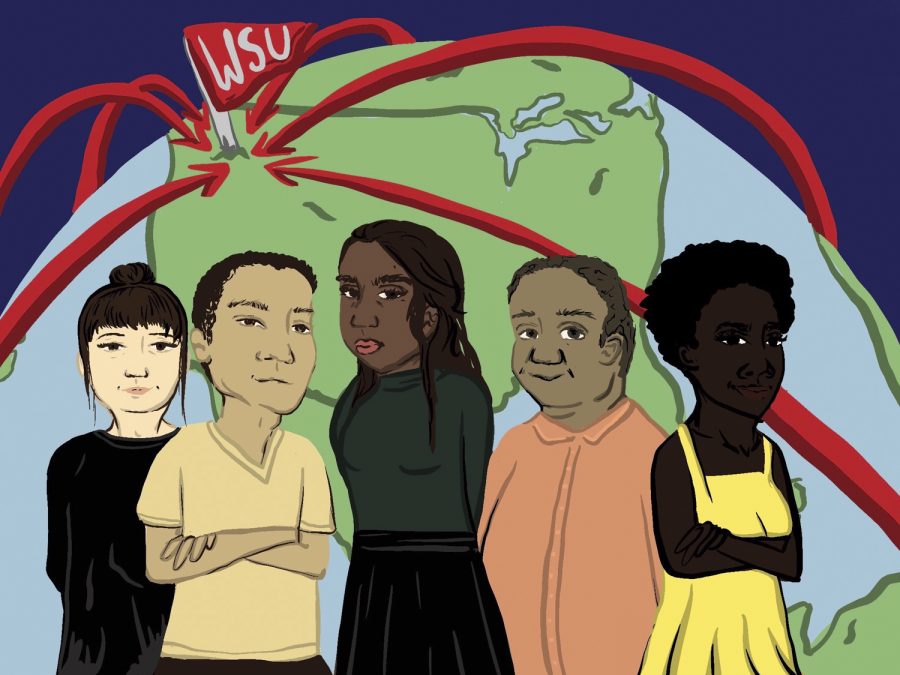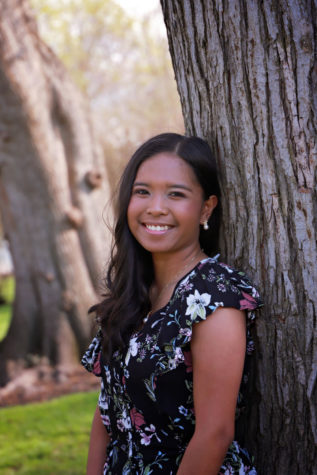Students of color reflect on pandemic experience
Students worry about stigma, adapting to online learning, spreading virus to family
Three WSU students of color share their experiences with COVID-19.
September 9, 2020
When Alyssa Chan returned to Pullman in August from Hong Kong, she did not want to tell people she was Chinese, worried that others would stigmatize her.
“As we know, the virus started in China,” said Chan, senior public relations major. “I would be scared to tell people I’m Chinese.”
A few days after arriving in Pullman, Chan took a cab home after visiting a grocery store. The driver asked her where she flew from. Chan said she feared the driver’s response if she told him the truth.
“I didn’t want people to think, ‘Oh, she just came back from China,’” she said. “So I said I came back from Canada.”
Going back to Hong Kong in the spring was stressful for Chan. She said the flight home was long, and she had to take three different flights in one day. Chan was worried about traveling, especially internationally, due to COVID-19 concerns.
Chan said living in Hong Kong over the summer made her feel safer than living in Pullman. She said Hong Kong is more prepared to address COVID-19 after experiencing SARS epidemic in 2003.
Not only has the COVID-19 pandemic caused Chan to fear being stigmatized, but it also made her worry about her family. She said Hong Kong has limited job opportunities due to COVID-19. With her mom not having a stable job, to begin with, the employment situation in her family brought more stress.
“There’s a lot of uncertainty for my family,” Chan said.
She decided to move back to Pullman to focus on her studies. If she stayed in Hong Kong, the 15-hour time difference would have been problematic for her Zoom lectures, she said.
Chan is learning to adapt to the Zoom learning environment. However, she said it can be frustrating at times to do online classes because she learns best in person. Keeping track of instructors’ emails and announcements is overwhelming as well, she said, especially when many assignments are due the same day.
Chan has been trying to focus on her mental health while living in Pullman. She said a lot of her friends did not come back to Pullman.
“I think I lost a support system compared to the one I had before the pandemic happened,” she said.
Chan manages her stress and maintains balance in her schoolwork and social life by making sure she makes time to socialize with friends. She said she often video calls her friends and sometimes meets up with a few of her Chi Sigma Alpha sisters.
“I miss being able to go outside without fearing anyone who came too close to me,” Chan said.
Luke Thompson, sophomore Carson College of Business student, said his main concern during the pandemic is spreading the virus to his family. He decided to stay home in California to protect himself and his family.
“My parents are a little bit of older age, so I wanted to be cautious of that,” he said.
With a majority of his family in Hawaii, his family’s plans to visit relatives were canceled due to COVID-19. Thompson’s family wanted to visit Hawaii, but they felt it would pose risks to his 89-year-old grandmother.
The stigma associated with COVID-19 and people of Asian descent is worrisome for Thompson, who is Chinese and Finnish. After reading WSU’s February letter on inclusivity and the mistreatment of people in the Asian community, Thompson worried he would experience something similar.
“It definitely made me pull the brakes a little bit and analyze and say, ‘Wow, this happened to this person. I wonder if that could happen to me,’” he said.
Thompson said people’s judgment of others based on appearance is a scary thought.
Although he spends most of his time at home, Thompson schedules time to play basketball at a nearby park. He said he misses campus life and attending WSU’s football and basketball games.
“I really enjoy doing social activities,” Thompson said. “It’s much more difficult now because you never know who could be carrying the virus.”
Alexis Buenrostro, sophomore wildlife ecology and conservation sciences major, said she is having a difficult time adapting to online classes. She is also struggling to stay focused and motivated.
“You’re staying at home. You kind of feel stuck, in a way,” she said. “Because of that, you really have no motivation to do anything. Everything that you do feels like it’s all homework.”
Buenrostro said she is learning to keep an open mind to ace her classes. She also learned to do her schoolwork outside of her bedroom to keep herself engaged.
Being a traditional learner who values and prefers in-person classes, she said she misses seeing her professors in person. She misses studying with friends and talking to classmates. She said making friends over Zoom is difficult.
“Going to class in-person was like the social event that I needed to keep me sane,” Buenrostro said.
Aside from academic challenges, she worries about how her siblings are adapting to online learning. Buenrostro is the first one in her family to go to college. She said her mother can only help her siblings with so much since her mother did not finish high school.
When she went back home last spring, she would help her siblings with their schoolwork. Her siblings now do not have a person to help them with their studies because she moved back to Pullman, she said.
Based on her experience as a first-generation Mexican student, she said she has seen students of color like her struggle more in overcoming challenges, even now during the COVID-19 pandemic.
“I don’t feel that we’re granted or gifted as many opportunities as others,” Buenrostro said. “Because we’re the minority, we have to work a lot harder for what we want.”
She said knowing there are others like her experiencing similar circumstances and emotions gives her relief. During the pandemic, she is working on improving her mindset, going on walks, appreciating nature and focusing on self-care.
“I’m taking [the pandemic] as a learning experience,” Buenrostro said.










